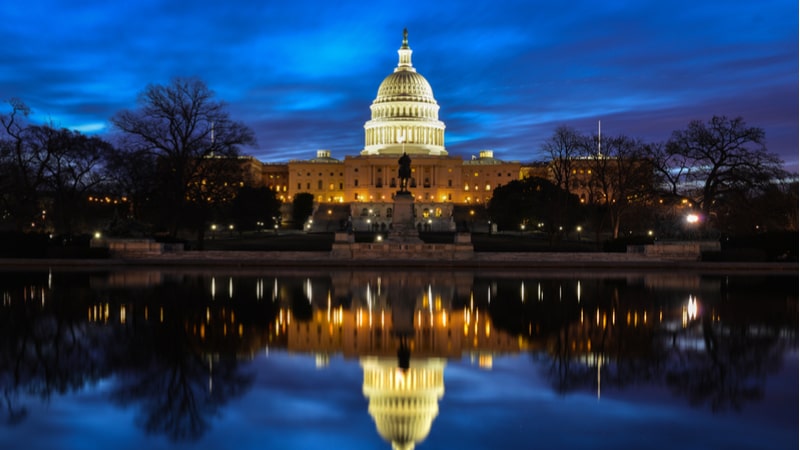
A partial government shutdown was still in effect as of Monday, December 24, 2018, after Congress and the Trump administration could not come to an agreement on a government funding bill over the weekend.
The Senate adjourned Saturday afternoon without a deal in place to re-open the government. The President’s Acting Chief of Staff Mick Mulvaney said that it’s possible the shutdown “will go beyond the 28th and into the new Congress.”
The new Congress takes office on January 3rd, 2019.
The Senate is expected to hold a pro forma session today, and convene for a formal legislative session on Thursday, Dec. 27.
While the lapse in government appropriations remains in effect, it means some Federal employees will be furloughed, while numerous other employees deemed to be essential at various agencies will continue to work—they just won’t immediately be receiving a paycheck.
But that all depends on which agency is involved. For example, employees of the Department of Defense, Department of Veterans Affairs, and Department of Health and Human Services will not be impacted by the shutdown because full-year funding bills for those agencies were approved earlier this year.
Regarding Federal IT operations, the Office of Management and Budget (OMB) said those operations may continue if they are excepted activities under the Antideficiency Act. When considering continuing or suspending IT operations during the shutdown, agencies must take into consideration if information systems would become disrupted, a loss of information would incur, or if a suspension would introduce new cybersecurity threats, OMB said.
Republicans and Democrats apparently remain far apart on negotiations for a short-term budget deal, with President Trump’s demand for funding to build a wall on the U.S. southern border being the chief sticking point. Democrats in the House and Senate have vowed to oppose any direct funding for a wall project, making passage of a such a measure unlikely in the Senate where a vote of 60 senators would be required.
